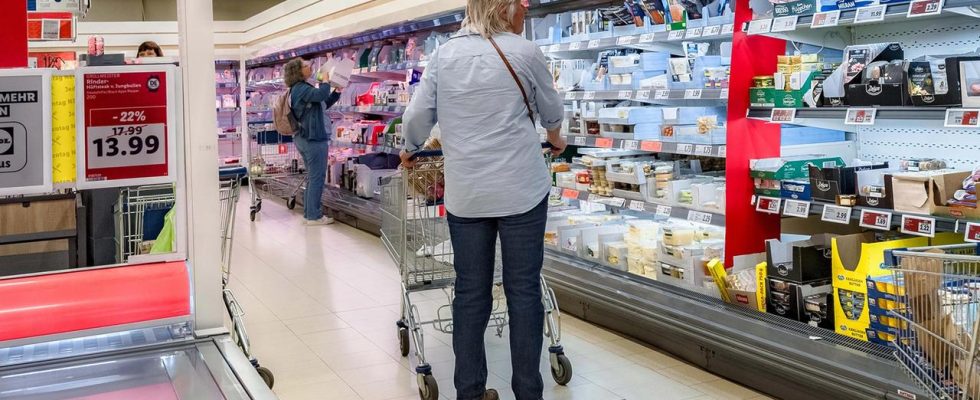The German inflation rate remained stable in April. In March it had already fallen to 2.2 percent, its lowest value in almost three years. Experts do not expect a further decline for the time being.
Inflation in Germany surprisingly remains at its recently significantly lower level. In April, as in March, consumer prices were 2.2 percent higher than in the same month last year, as the Federal Statistical Office announced today based on its first estimate. The inflation rate remains at its lowest level since April 2021.
Economists surveyed by the Reuters news agency had expected the inflation rate to rise to 2.3 percent. From March to April, prices rose by 0.5 percent.
More companies want to increase prices in the future
Despite the price brakes for energy products that expired at the beginning of the year and the CO2 price increase for fossil fuels such as fuels, heating oil and natural gas, which also took effect from January, energy prices have continued to fall, according to the statisticians. However, not as much as in April, when they fell by 2.7 percent. One reason for this is the VAT for gas and district heating, which increased to 19 percent on April 1st – it was temporarily reduced to seven percent during the energy crisis as a result of Russia’s war against Ukraine.
Food costs 0.5 percent more in April than a year ago (March: minus 0.7 percent). 3.4 percent more were charged for services (March: plus 3.7). The so-called core inflation – which excludes energy and food prices – meanwhile fell to 3.0 percent. In March, the core inflation rate rose by 3.3 percent.
In the coming months, however, more companies want to ask their customers to pay more – especially in consumer-related industries such as catering and retail. The barometer for price expectations rose to 15.1 points in April from 14.3 in March, the ifo Institute reported today. “In the coming months, inflation is unlikely to decline any further and will remain at just over two percent,” concluded Ifo economic expert Sascha Möhrle.

